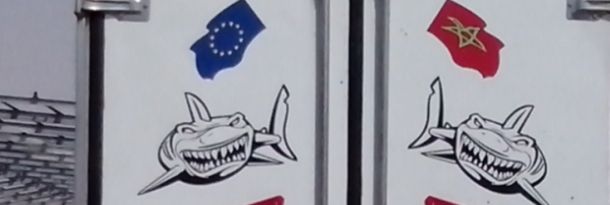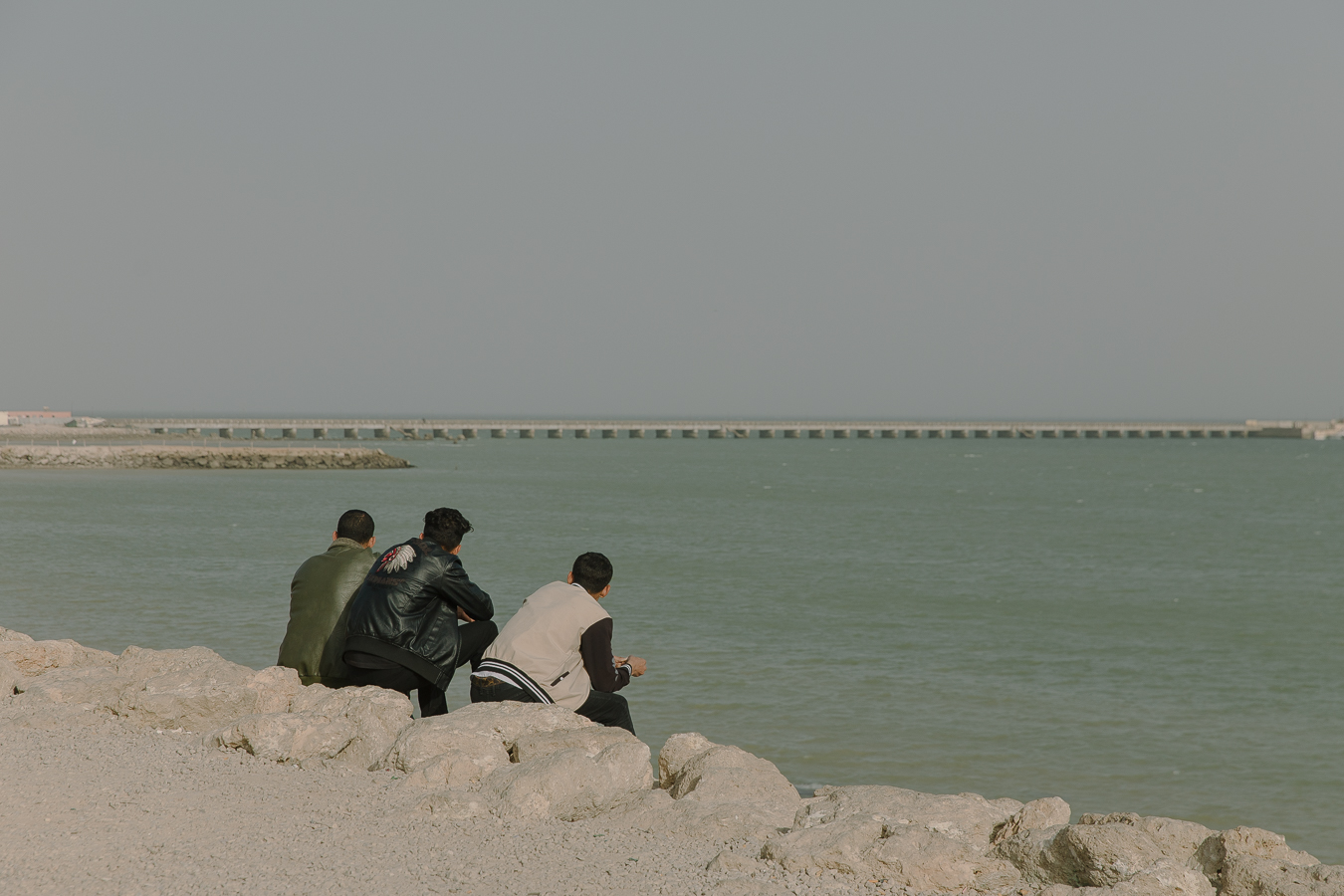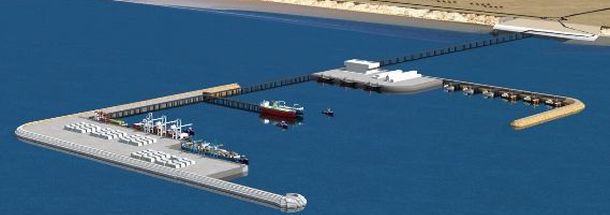
Tenders are expected to be launched before the end of the year.
Morocco's Ministry of Equipment and Transport has reportedly set up a Committee to launch tenders for the mega-project and to oversee the actual construction.
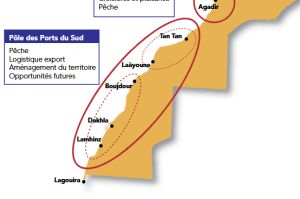
The new Dakhla port is part of Morocco's 2030 National Ports Strategy, announced in 2010, envisaging the increased performance of ports in six regions. Dakhla is lumped into the "southern region" - Morocco's terminology for the parts of Western Sahara that it has held under military occupation since 1975. The "southern ports" as described by Morocco's Ministry for Equipment and Transport in their strategy note, include Tan Tan (which is actually located in the south of Morocco proper), Tarfaya (practically on the border between Morocco and Western Sahara) and El Aaiun, Boujdour and Dakhla - all three located outside of the internationally recognised borders of Morocco, and in the parts of Western Sahara that Morocco has held under military occupation since 1975. Key-words used by the Ministry to describe the vocation of the "southern" ports are fisheries, export logistics, development of the territory and future opportunities.
The strategy note of the Ministry for Equipment and Transport describes the port of El Aaiun as dedicated to fisheries, trade with the Canary Islands and for exporting phosphate products from the mines of Boucraa. The aim is to adapt the port of El Aaiun to the forecast increase in traffic, related to the area's economic potential in term of fisheries and renewable energy, particularly in view of the creation of industrial solar and wind power generation units. As such, the existing trade platform will be extended. The port of Boujdour, currently in use for landing catches of small pelagic fish, would be extended with wharves to accommodate Refrigerated Salt Water vessels (RSW), similar to the port of Dakhla.
But the plans for the other ports in the "southern axis" pale in comparison to the colossal plans for Dakhla, which is budgetted at no less than 9% out of the total planned investment on the 17 projects under the National Port Strategy. The town will not host one, but two ports. Find images of two-dimensional plans for both ports below.
Western Sahara Resource Watch (WSRW) finds the Moroccan plans to be deeply worrisome. "These new ports will be used to entrench the occupation and intensify the plunder of the territory. We urge all international companies not to undertake any projects in Western Sahara without the express consent of the people of the territory", stated Sara Eyckmans, coordinator of Western Sahara Resource Watch.
In a nut-shell, the current port in Dakhla - located in a closed bay area - will in the future mainly be used for the purposes of landing catches, and of passenger traffic to the Canary Islands and possibly for tourist cruises.
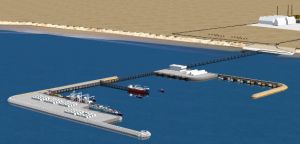
In addition, a brand new deep-water port will be constructed outside of the bay area, to meet the needs stemming from the projected increased exploitation of the small pelagic fish stocks in the area. The new port, referred to as "Dakhla Atlantique", will be all about fishing: accommodating fishing traffic, and all commercial activities stemming from the valorization of landed catches. That includes export, favouring maritime to road transport, of mainly fish products and to a lesser extent agricultural products, the Ministry writes in the strategy note. In fact, production volumes are expected to be so high that regular maritime transport routes to other ports will be set up, in addition to the currently operational maritime routes to Agadir and to Nouadhibou in Mauritania for reefer vessels. The Ministry also envisions setting up specialized terminals in accordance with the natural resources being exploited in the area.
Two potential sites are being considered to host "Dakhla Atlantique": the Cabello Bay and the Bay of Cintra. It is unclear to WSRW whether construction work has already kicked off in the ports in occupied Western Sahara. Several dredgers have been frequenting the port of Tarfaya, on the border, since early September. A dredger called Gerardus Mercator (IMO 9119335, Mauritius flag) is spotted around the phosphate dock of the port of El Aaiun. Other, practically unidentifiable vessels have been at anchor near the ports of El Aaiun and Dakhla for weeks. Just north of Dakhla, a French-flagged drill-ship (Josefina, MMSI 227373480) has been berthed for months.
The ambition for a mega-port in Dakhla is not new. The aspiration was mentioned specifically by the king of Morocco, Mohammed VI, in November 2015, at the occasion of Morocco's 40-year celebrations of the so-called Green March - the nebulous epithet for Morocco's military invasion into Western Sahara in November 1975. In his speech, streamed live on Morocco's national TV channels, the king declared his intention to "build the Great Dakhla Port" and to integrate the "southern provinces" into "a unified homeland and to enhance the influence of the Sahara region as an economic hub and a crucial link between Morocco and its African roots". Spokesperson of the Moroccan government, Mustapha El Khalfi, has confirmed that the project is in line with the country’s development plans for the "southern provinces". The plan is sometimes referred to as the "Marshall Plan for the southern provinces", and is said to consist of 683 projects for the 2016 – 2023 period - all aiming to economically develop land that does not belong to Morocco.
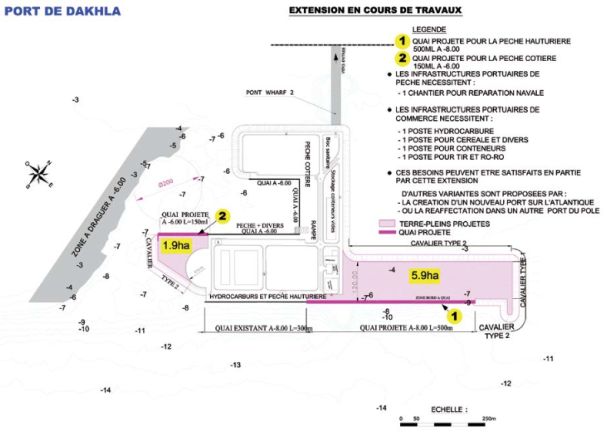
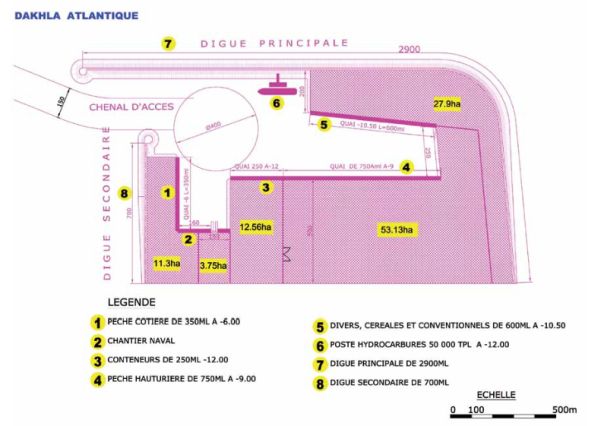
Moroccan report reveals EU funding to occupied territories
Morocco is spending most of the funding it receives as part of the EU-Morocco fish deal building up infrastructure in occupied Western Sahara. And the European Commission is fully aware of this.
New Fish Market at occupied town of Boujdour
Morocco dreams of new monster port in Western Sahara
Canary trade mission to legal minefield
A publicly organised mission will take Canary companies into occupied Western Sahara later this month.
